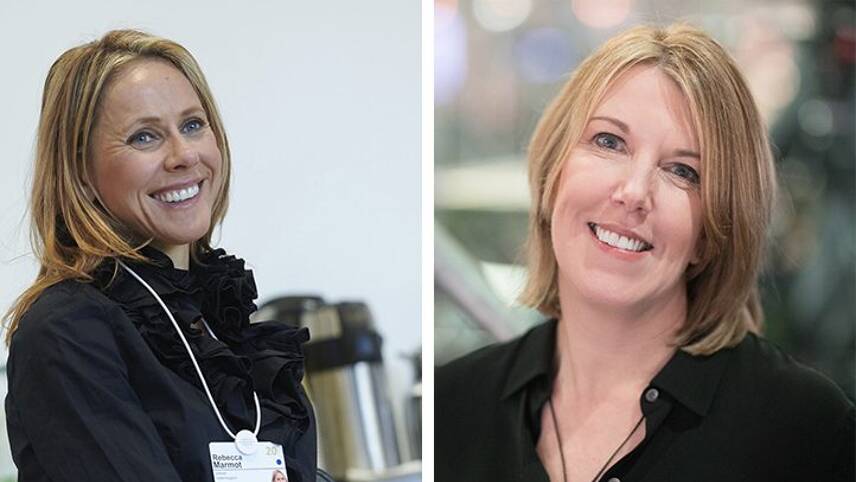Register for free and continue reading
Join our growing army of changemakers and get unlimited access to our premium content

We need tangible, practical and crucially, local answers to the challenges set out in the SDGs – such as those already being created by entrepreneurs and innovators all around the world. The ideas and the intent are there – what’s missing is the ability to bring these ambitions to scale.
Through the UK Aid-supported TRANSFORM initiative, we’ve developed a private-public partnership model that harnesses local innovation and thinking, blending it with the capital and capabilities of corporates, to speed up progress towards the SDGs. We work exclusively with impact entrepreneurs in sub-Saharan Africa and South Asia who are providing genuinely life-changing products and services. They tackle everything from providing clean water to people in crowded cities, to helping women in rural communities access quality healthcare.
Over the last 6 years, the TRANSFORM initiative has provided £40m in funding and bespoke business support from Unilever and EY to 61 enterprises in 13 countries. And through the incredible work of these entrepreneurs, the business models scaled by our programme have positively impacted 6 million people.
Take Drinkwell, which uses nanotechnology and an innovative ‘Water ATM’ to provide clean drinking water to communities in Bangladesh. With advice from EY teams, they overcame growing pains to develop a new business model and used Unilever’s extensive sales force to market the new product. This helped to make Drinkwell what it is today: a nationally viable business model which solves the shortage of sanitised drinking water.
Across Africa, we’re privileged to work with the online marketplace MumsVillage and e-commerce health and self-care platform Kasha, both of which give women the support, information and products they need to make better choices and live more fulfilling lives.
With TRANSFORM’s counsel on recruiting, training and expanding their network of formidable sales and distribution representatives, Kasha has grown to become one of the leading FemTech organisations in Africa: experiencing five times year-on-year revenue growth. Unilever partnered with them to launch the Lifebuoy brand in Rwanda.
And TRANSFORM’s funding coupled with consulting support from EY teams helped MumsVillage to develop a business plan that allowed them to transition to a digital platform and marketplace that offers products and knowledge to women, helping them to make informed choices about the wellbeing of their families. A further round of funding supported MumsVillage to continue to grow during the pandemic, as physical stores closed.
We’re also supporting TrashCon, which created globally-awarded automated waste sorting and recycling technology in India – converting tons of mixed waste into recycled plastic, biofuel and multi-purpose furniture boards for domestic and overseas markets. Through support from EY teams, they were able to pivot their business model and find new export markets for its repurposed plastic. In their first year of sales, TrashCon made $1m in revenue and is continuing its expansion.
But this isn’t simply a philanthropic exercise, for TRANSFORM to work, there needs to be mutual benefits for everyone involved.
We believe that TRANSFORM represents a new way of blending public sector investment with private sector expertise to drive sustainable development. It also allows us to expand our own networks, gain valuable exposure to new markets and technologies, and better understand low-income consumers. And importantly, it provided our people the opportunity to work with some of the most impressive entrepreneurs developing leading-edge technologies.
We’ve taken stock of all we’ve learnt over the last six years through working together with the impact enterprise community. The result is a series of five reports that spotlight the challenges we’ve faced and the business models we’ve helped refine, with the entrepreneurs’ stories at the heart. We cover everything from how businesses scale, ways to expand their sales & distribution networks, the challenges on marketing their products and how to build digital businesses.
We want to share these reports with others – governments, multinationals, agencies, NGOs and entrepreneurs – in the hope that our lessons provide a foundation for replication or help a budding impact enterprise deliver better outcomes both commercially and to the communities they serve.
Looking ahead, we’re planning on expanding our scale and impact even further and will be launching a new phase of the programme later this year, extending our collaboration to 2025. We’re on the lookout for organisations that want to embrace this new partnership model to reach the SDGs. The pressure is on – but we can only progress by working together.
Rebecca Marmot is chief sustainability officer at Unilever and Alison Kay is managing partner for client services at EY UK&I



Please login or Register to leave a comment.